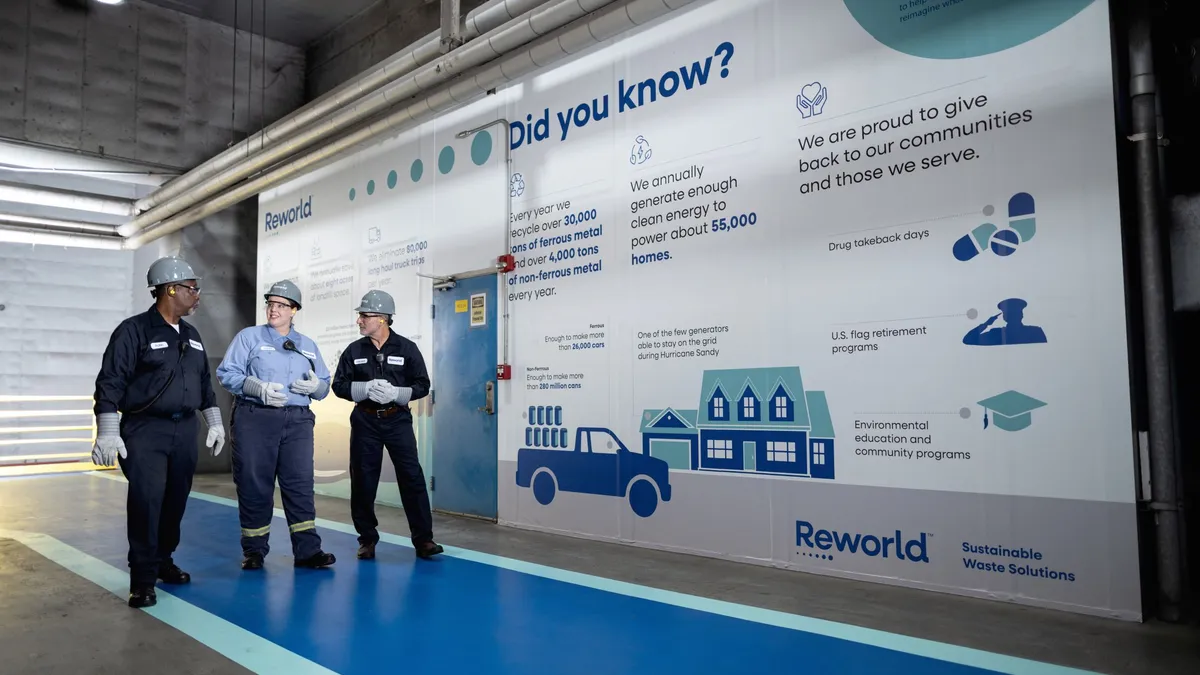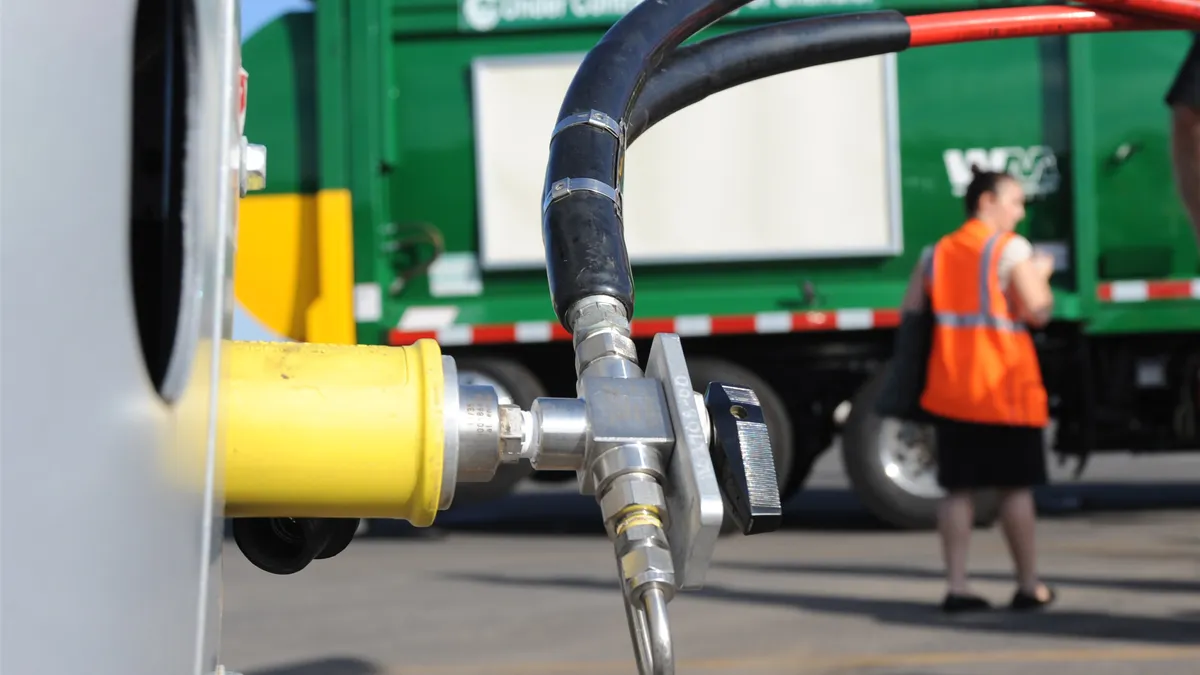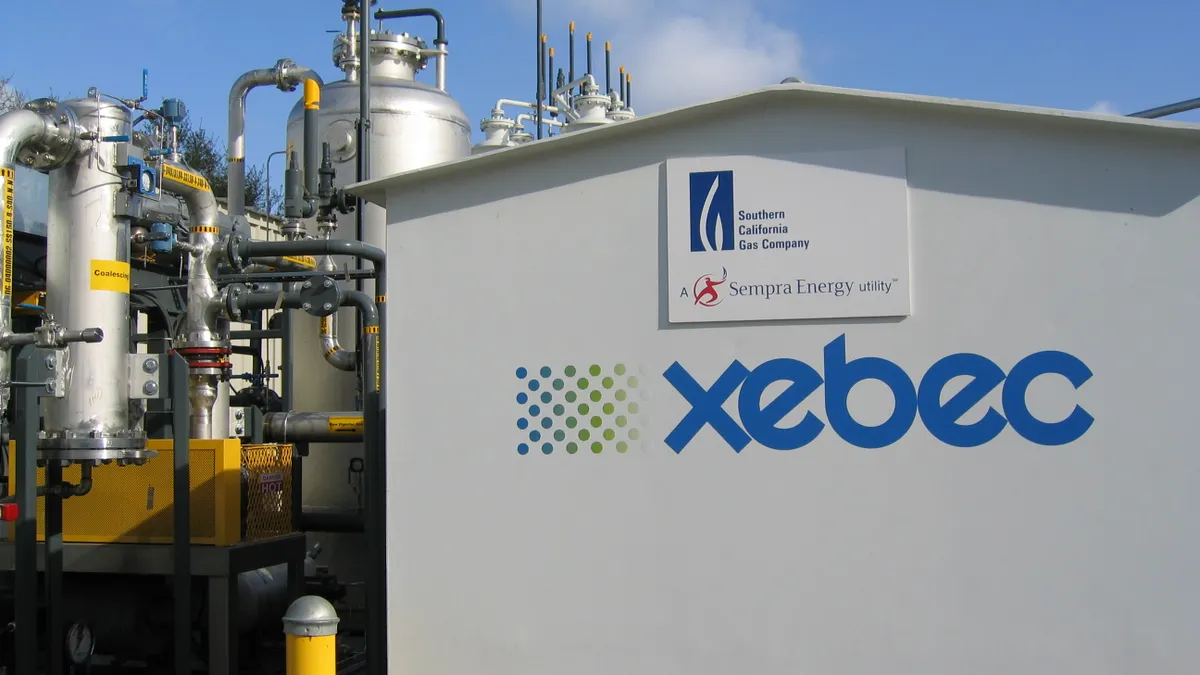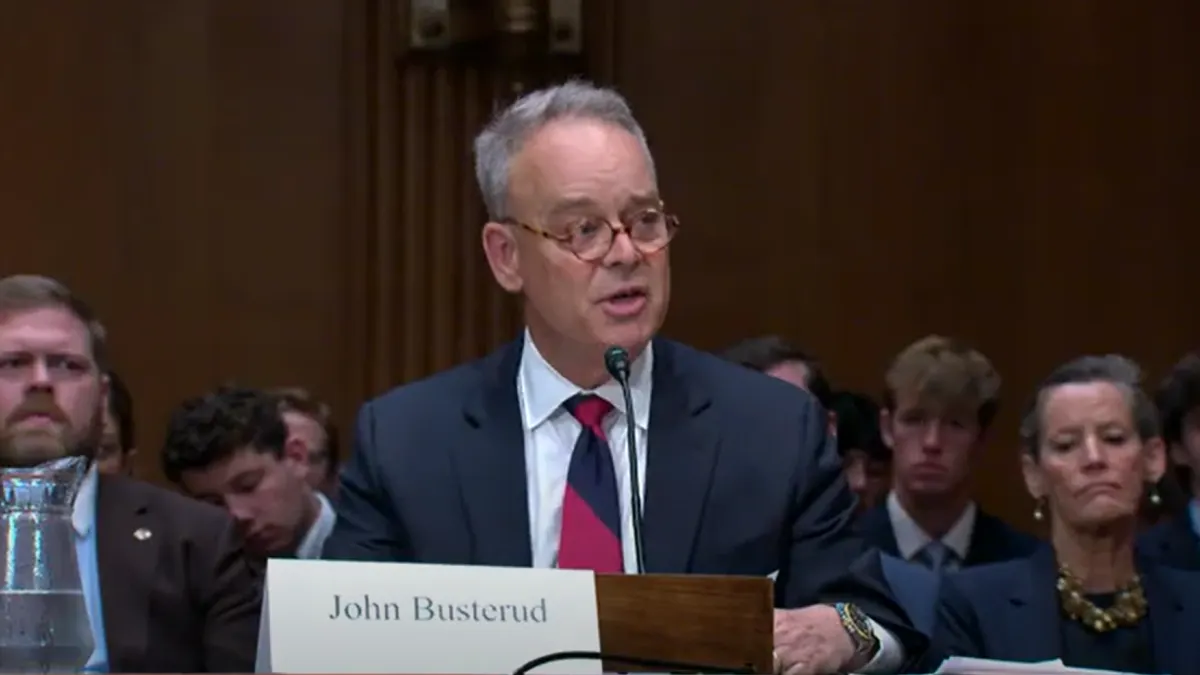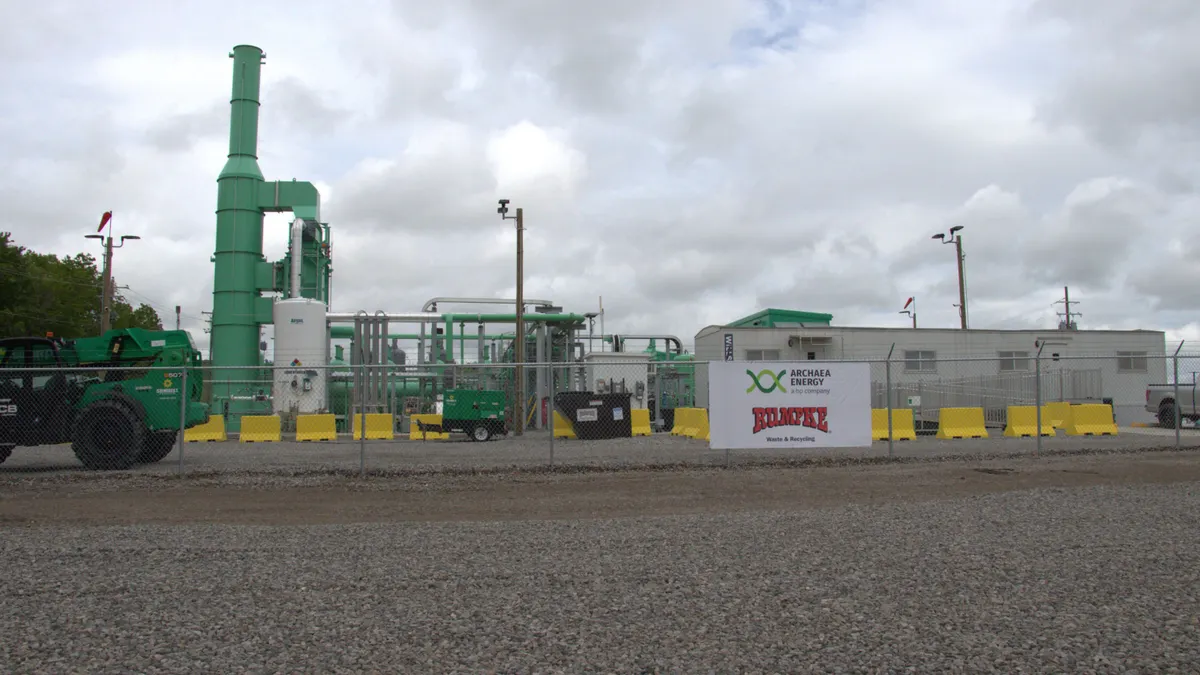Welcome to Scrap Collector, Waste Dive's Friday round-up of insights and stories you may have missed during the week.
END OF THE LINE FOR BRESCO?
The polar vortex plunged Baltimore into single-digits temperatures this week — but for its Wheelabrator-owned BRESCO incinerator, the reception indoors proved equally chilly. A public hearing on Wednesday spelled decidedly bad news for the embattled WTE facility: the Land Use and Transportation Committee voted 7-0 in favor of a city ordinance that, if passed, could effectively shut down the incinerator.
7-0. Baltimore Clean Air Act voted out of committee. @WTIEnergy, @ERC_WTE, and Curtis Bay Energy tried to get in the way, but no dice in Round 1. There are more jobs in zero waste than incineration, people. @wbaltv11 , @wjz , @FOXBaltimore , @NPR , @WasteDive , @RealNewsNetwork
— Clean Air Baltimore Coalition (@CleanAirBmore) January 31, 2019
The Baltimore Clean Air Act, which calls for dramatically tightened emissions standards and continuous monitoring of large-scale burners, is being touted by advocates as a critical step for environmental justice in the city. Baltimoreans breathe some of the deadliest air in the nation — the Asthma and Allergy Foundation of America ranked Baltimore the 33rd worst asthma capital last year — and environmental groups place much of the blame on BRESCO, which generated 82% of the sulfur dioxide and 64% of the nitrogen oxides emitted by smokestacks within city limits in 2014.
Wednesday's vote dealt a victory to the bill's proponents — and, as reported by WBAL-TV, to local residents who experience the incinerator's impact firsthand.
"It provides hope for a community, like mine, who have served as the brunt of environmental pollution for at least three decades," said Westport resident James Alston.
Wheelabrator executives argued against the proposed regulations, insisting BRESCO already meets federal and local clean air standards — and that the facility is essential toward fulfilling Baltimore's waste disposal requirements.
"Passing, unamended, will certainly have the effect of closing Wheelabrator and will be a choice by the council of long haul disposal — 37,000 trucks a year taking the waste out of the city to a landfill far away," said Jim Connolly, Wheelabrator's vice president of environmental health and safety.
The bill is slated for a final vote from the Baltimore City Council on Monday, Feb. 4.
IN OTHER NEWS...
Michigan's largest incinerator is also not having a great week — Press Release
Detroit is following Baltimore's example re: hitting its incinerator with a third-degree burn. Citizen-based nonprofit groups Environment Michigan and the Ecology Center announced Tuesday that they're filing a lawsuit against the operators of Michigan's largest incinerator for ongoing breaches of the federal Clean Air Act — far from the first time the facility has been targeted by legal and regulatory action in recent years.
The Detroit incinerator, which is operated by Detroit Renewable Power and Michigan Waste Energy, burns nearly a million tons of solid waste per year — and, according to Great Lakes Environmental Law Center (GLELC) Executive Director Nicholas Leonard, "When the trash isn't burned completely, the incinerator emits highly dangerous chemicals such as benzene, toluene, acrolein, and formaldehyde."
"We are taking this action to protect the health of Detroit families who suffer from high rates of asthma and other health concerns," said Kathryn Savoie, Detroit Community Health Director for the Ecology Center. "When the incinerator repeatedly violates the Clean Air Act, it adds to the health burden of residents who live near the incinerator."
The groups will seek a court order requiring the incinerator to comply with its Clean Air Act permit as well as civil penalties against the operators for past violations.
EPA says "meh" to regulating hazardous chemicals in drinking water — Politico
Less than a year after the White House and Scott Pruitt's EPA moved to block publication of a PFAS water-contamination study, sources have informed Politico that EPA will not be setting a drinking water limit for two chemicals — PFOA and PFOS — linked to kidney and testicular cancer, hypertension and other ailments.
Up to 110 million Americans could be drinking PFAS-contaminated water, according to a May 2018 Environmental Working Group report — and aggressive regulatory efforts could force major chemical companies, the Department of Defense and some landfill operators to face billions of dollars in liability for contaminated groundwater.
Per EPA's expected forthcoming decision, utilities won't be bound by federal requirements for the testing and removal of these chemicals from potable water supplies — even though the agency's as-yet-unreleased draft chemical plan reportedly includes a decision to list both as hazardous under the Superfund law. It's a potentially dangerous move — especially, as noted by Waste Dive columnist Rich Thompson, given what a Herculean task it is in the first place to put the genie back in the bottle.
AROUND THE WORLD
Pay-as-you-tour: Bali to introduce pollution-tackling tourist tax — The Jakarta Post
Ahh, Bali. White-sand beaches; gorgeous, sun-bronzed people — and the 3,800 tons of trash generated each day by those beautiful people. In an effort to curtail growing volumes of plastic waste polluting beaches and waters, Balinese authorities are preparing a bylaw that will impose a $10 levy on the millions of international tourists visiting the island each year. Revenue from the tax, according to Governor Wayan Koster, will go toward environmental and cultural preservation programs.
The initiative enjoys support from local government and business leaders, who aren't concerned about possible declines in tourist numbers.
"Contributions from tourists are needed to help us preserve our environment and culture," pointed out Bali Legislative Council Speaker I Nyoman Adi Wiryatama. "Tourists come to enjoy our environment and culture. Why not contribute to preserving it?"
SEEN & HEARD
Thread on today’s Sanitation hearing in which @CMReynoso34 took up a package of bills that pols and advocates hope will address labor abuses in NYC’s private garbage industry???????????????????????? https://t.co/TOU7v5PNIU
— Kiera Feldman (@kierafeldman) January 29, 2019
Dr. Leyla Acaroglu at WM Sustainability Forum: Waste is both a design flaw and self-perpetuating system. It’s also a culture that society has normalized. pic.twitter.com/7agiwidhRl
— Cole Rosengren (@ColeRosengren) January 31, 2019
With #plastics, I keep looking backwards as a means of moving through the world, of moving forward. But I haven’t figured out why. What is the relevance of history to the future?#envhist #plasticpollution
— Rebecca Altman (@rebecca_altman) January 27, 2019
cc 1940s pic.twitter.com/EApqoOKue9
NEW TODAY | 5 Lessons in Plastic from @WasteDive https://t.co/zasWSM5AOw
— frank news (@FrankNewsUS) January 26, 2019







